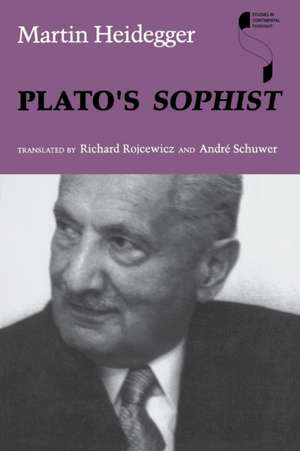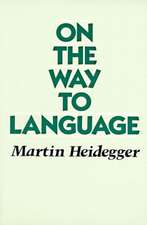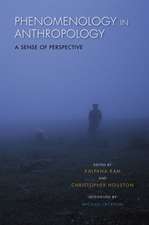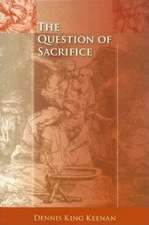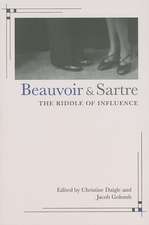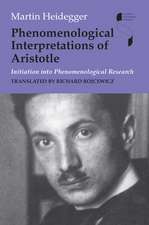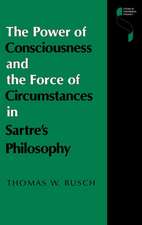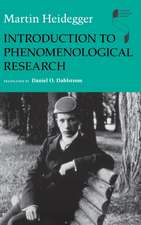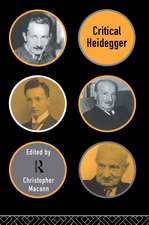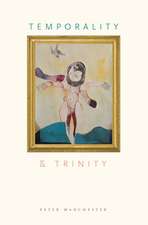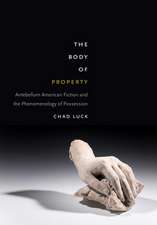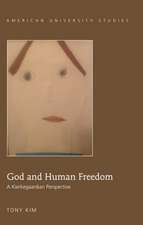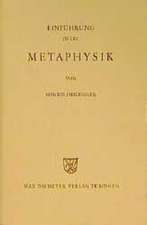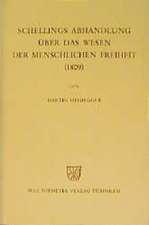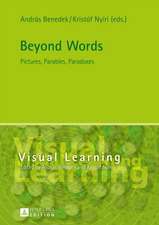Plato`s Sophist: Studies in Continental Thought
Autor Martin Heideggeren Limba Engleză Paperback – 8 iul 2003
Din seria Studies in Continental Thought
-
 Preț: 280.12 lei
Preț: 280.12 lei -
 Preț: 136.59 lei
Preț: 136.59 lei -
 Preț: 174.22 lei
Preț: 174.22 lei -
 Preț: 137.37 lei
Preț: 137.37 lei -
 Preț: 247.15 lei
Preț: 247.15 lei -
 Preț: 198.41 lei
Preț: 198.41 lei -
 Preț: 154.57 lei
Preț: 154.57 lei -
 Preț: 101.93 lei
Preț: 101.93 lei -
 Preț: 153.87 lei
Preț: 153.87 lei -
 Preț: 389.99 lei
Preț: 389.99 lei -
 Preț: 306.22 lei
Preț: 306.22 lei -
 Preț: 234.78 lei
Preț: 234.78 lei -
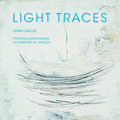 Preț: 160.61 lei
Preț: 160.61 lei -
 Preț: 242.38 lei
Preț: 242.38 lei -
 Preț: 102.86 lei
Preț: 102.86 lei -
 Preț: 377.90 lei
Preț: 377.90 lei -
 Preț: 296.30 lei
Preț: 296.30 lei -
 Preț: 400.38 lei
Preț: 400.38 lei -
 Preț: 165.19 lei
Preț: 165.19 lei -
 Preț: 125.43 lei
Preț: 125.43 lei -
 Preț: 165.56 lei
Preț: 165.56 lei -
 Preț: 123.66 lei
Preț: 123.66 lei -
 Preț: 164.60 lei
Preț: 164.60 lei -
 Preț: 183.28 lei
Preț: 183.28 lei -
 Preț: 159.12 lei
Preț: 159.12 lei -
 Preț: 185.48 lei
Preț: 185.48 lei -
 Preț: 396.72 lei
Preț: 396.72 lei -
 Preț: 162.98 lei
Preț: 162.98 lei -
 Preț: 280.98 lei
Preț: 280.98 lei -
 Preț: 189.22 lei
Preț: 189.22 lei -
 Preț: 226.81 lei
Preț: 226.81 lei -
 Preț: 193.04 lei
Preț: 193.04 lei -
 Preț: 162.69 lei
Preț: 162.69 lei -
 Preț: 186.17 lei
Preț: 186.17 lei -
 Preț: 296.85 lei
Preț: 296.85 lei -
 Preț: 196.35 lei
Preț: 196.35 lei -
 Preț: 313.29 lei
Preț: 313.29 lei -
 Preț: 292.81 lei
Preț: 292.81 lei -
 Preț: 319.66 lei
Preț: 319.66 lei -
 Preț: 224.69 lei
Preț: 224.69 lei -
 Preț: 264.06 lei
Preț: 264.06 lei -
 Preț: 229.91 lei
Preț: 229.91 lei -
 Preț: 323.70 lei
Preț: 323.70 lei -
 Preț: 131.81 lei
Preț: 131.81 lei -
 Preț: 158.82 lei
Preț: 158.82 lei -
 Preț: 255.26 lei
Preț: 255.26 lei
Preț: 211.96 lei
Nou
Puncte Express: 318
Preț estimativ în valută:
40.56€ • 42.19$ • 33.49£
40.56€ • 42.19$ • 33.49£
Carte disponibilă
Livrare economică 24 martie-07 aprilie
Livrare express 07-13 martie pentru 41.08 lei
Preluare comenzi: 021 569.72.76
Specificații
ISBN-13: 9780253216298
ISBN-10: 025321629X
Pagini: 512
Ilustrații: black & white illustrations
Dimensiuni: 156 x 233 x 32 mm
Greutate: 0.71 kg
Ediția:Indiana Univ PR.
Editura: MH – Indiana University Press
Seria Studies in Continental Thought
ISBN-10: 025321629X
Pagini: 512
Ilustrații: black & white illustrations
Dimensiuni: 156 x 233 x 32 mm
Greutate: 0.71 kg
Ediția:Indiana Univ PR.
Editura: MH – Indiana University Press
Seria Studies in Continental Thought
Recenzii
A must for any collection supporting graduate programs in philosophy, classics, and literary criticism. Choice". . . thematic and methodological parallels render this volume a fine source for those interested in the archaeology of Being and Time. . . . The text shows us a young Martin Heidegger at ease and passionate about his subject. . . ." -International Philosophical QuarterlyStudents and scholars alike can now see for themselves why Heideggers lectures on the Greeks in the 1920s caused such a stir, and they can judge just what it means to read a Greek text with Heidegger. . . . The English translation is excellent, managing to capture some of the vibrancy of the lectures while maintaining a high degree of accuracy and readability. John Ellis, University of Memphis
Notă biografică
Descriere
The fullest and most detailed expression of Heidegger's confrontation with Greek thought
